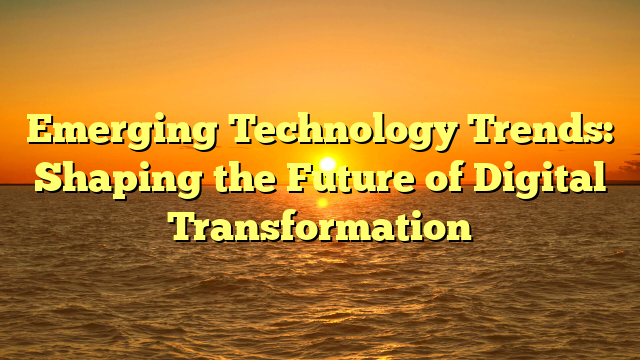In the fast-paced digital era, technology continues to evolve at an unprecedented rate, reshaping industries, businesses, and even daily life. The latest technology trends are not only accelerating digital transformation but also opening new opportunities while presenting challenges that require careful consideration. From artificial intelligence to sustainable innovations Tempur99 , these trends are paving the way for a smarter and more connected world.
One of the most significant drivers of change is Artificial Intelligence (AI). Once a futuristic concept, AI has now become a practical tool embedded in various sectors such as healthcare, finance, education, and creative industries. Beyond automating repetitive tasks, AI is capable of analyzing massive datasets with remarkable speed and accuracy, supporting better decision-making. The emergence of generative AI, which powers intelligent chatbots and content creation systems, is pushing the boundaries of what machines can accomplish, raising both excitement and concerns about ethics, creativity, and job displacement.
Equally transformative is the Internet of Things (IoT). With billions of devices connected worldwide, IoT creates an ecosystem where everyday objects—from smart home appliances to autonomous vehicles—communicate seamlessly. In industrial settings, IoT enables predictive maintenance, energy optimization, and enhanced productivity. However, this hyper-connectivity also brings significant challenges in cybersecurity and data privacy, as the more devices are connected, the greater the vulnerability to digital threats.
The rollout of 5G technology is another major enabler of innovation. Offering ultra-fast connectivity and low latency, 5G supports applications that require real-time responsiveness, such as augmented reality (AR), virtual reality (VR), and advanced telemedicine. Furthermore, it lays the groundwork for the development of smart cities and intelligent transportation systems. By bridging the gap between digital and physical worlds, 5G is expected to redefine how people interact with technology.
Another emerging area is blockchain and Web3 technologies, which aim to decentralize digital ecosystems. Beyond powering cryptocurrencies, blockchain provides secure, transparent, and tamper-proof systems that could transform supply chain management, voting systems, and digital identity verification. While adoption is still uneven and regulatory frameworks remain unclear, the potential impact of decentralized systems is substantial and could reshape global finance and governance models.
Sustainability has also become a central theme in technology innovation. Green technology, focusing on renewable energy, low-power devices, and eco-friendly infrastructure, is gaining traction as societies face the realities of climate change. From the development of long-lasting batteries for electric vehicles to energy-efficient data centers, companies are increasingly embracing technology not only as a driver of profit but also as a tool for environmental responsibility.
Looking toward the future, quantum computing represents a groundbreaking yet still experimental frontier. Unlike classical computers, quantum systems can process vast amounts of information simultaneously, solving problems that are currently unsolvable. Potential applications include drug discovery, financial modeling, and cryptography. Although still in its early stages, quantum computing could revolutionize entire industries once it becomes commercially viable.
These technology trends illustrate how innovation is reshaping modern society in profound ways. Yet, they also underscore the importance of addressing challenges such as digital inequality, job displacement, and ethical implications of advanced technologies. Striking a balance between rapid progress and responsible adoption will be essential to ensure that technology serves humanity inclusively and sustainably.
In conclusion, the latest trends in technology highlight a world that is becoming increasingly intelligent, interconnected, and environmentally conscious. Whether through AI-powered solutions, decentralized systems, or eco-friendly innovations, the future promises vast opportunities. However, society must remain vigilant in managing the risks that come with this transformation, ensuring that digital progress truly benefits all.
